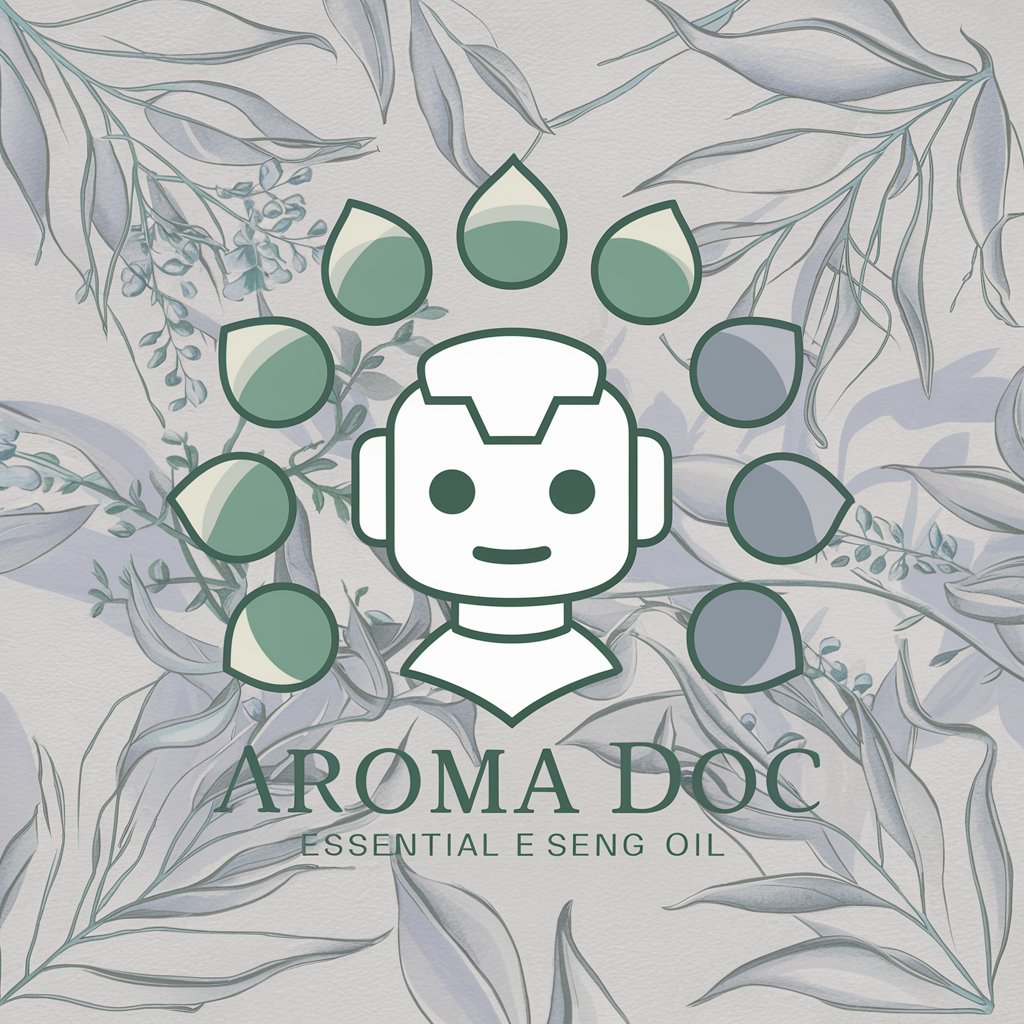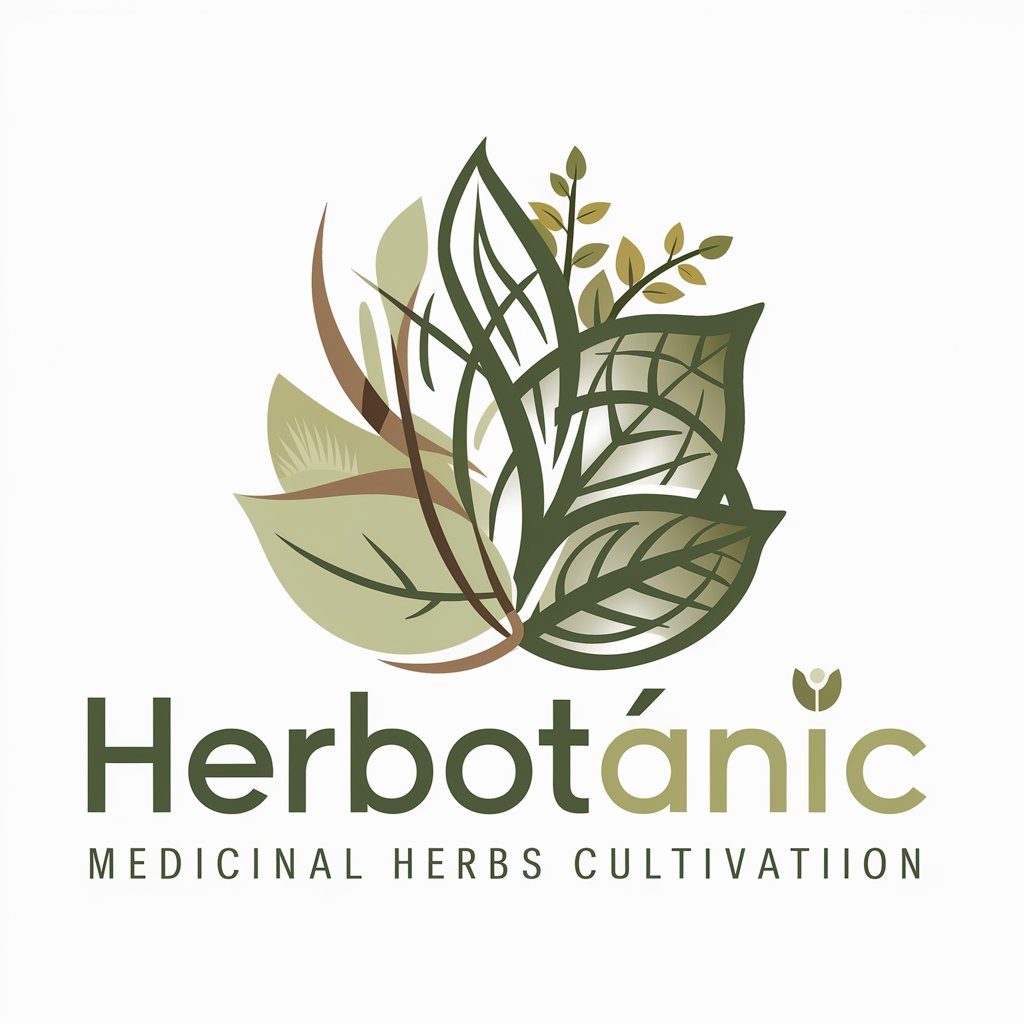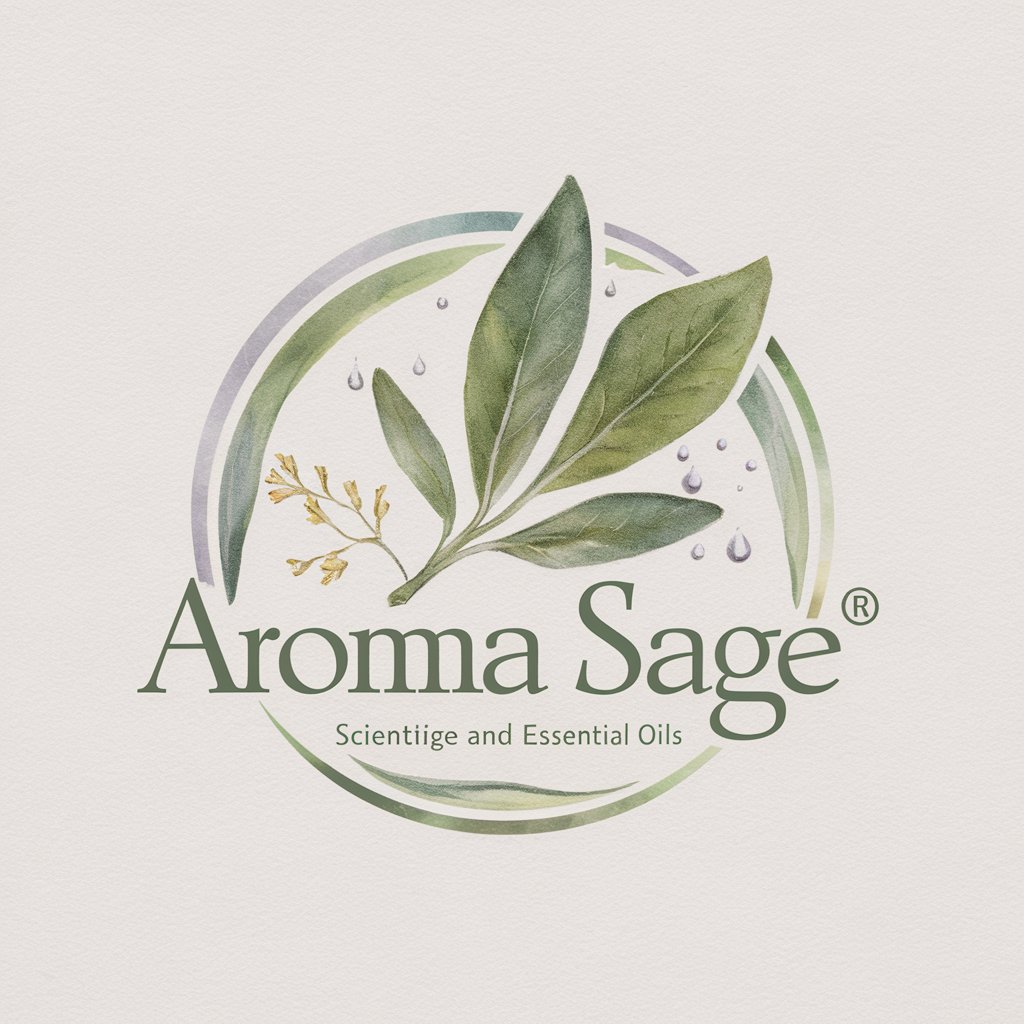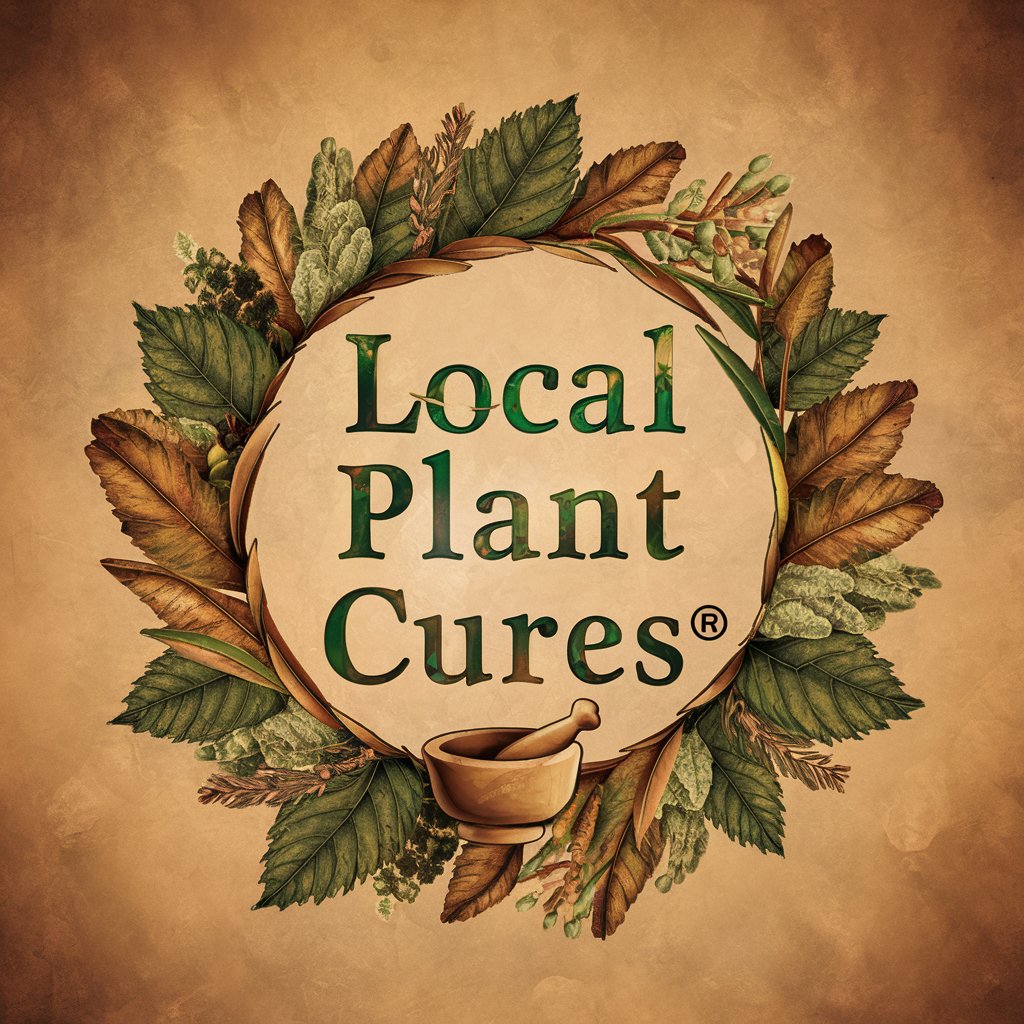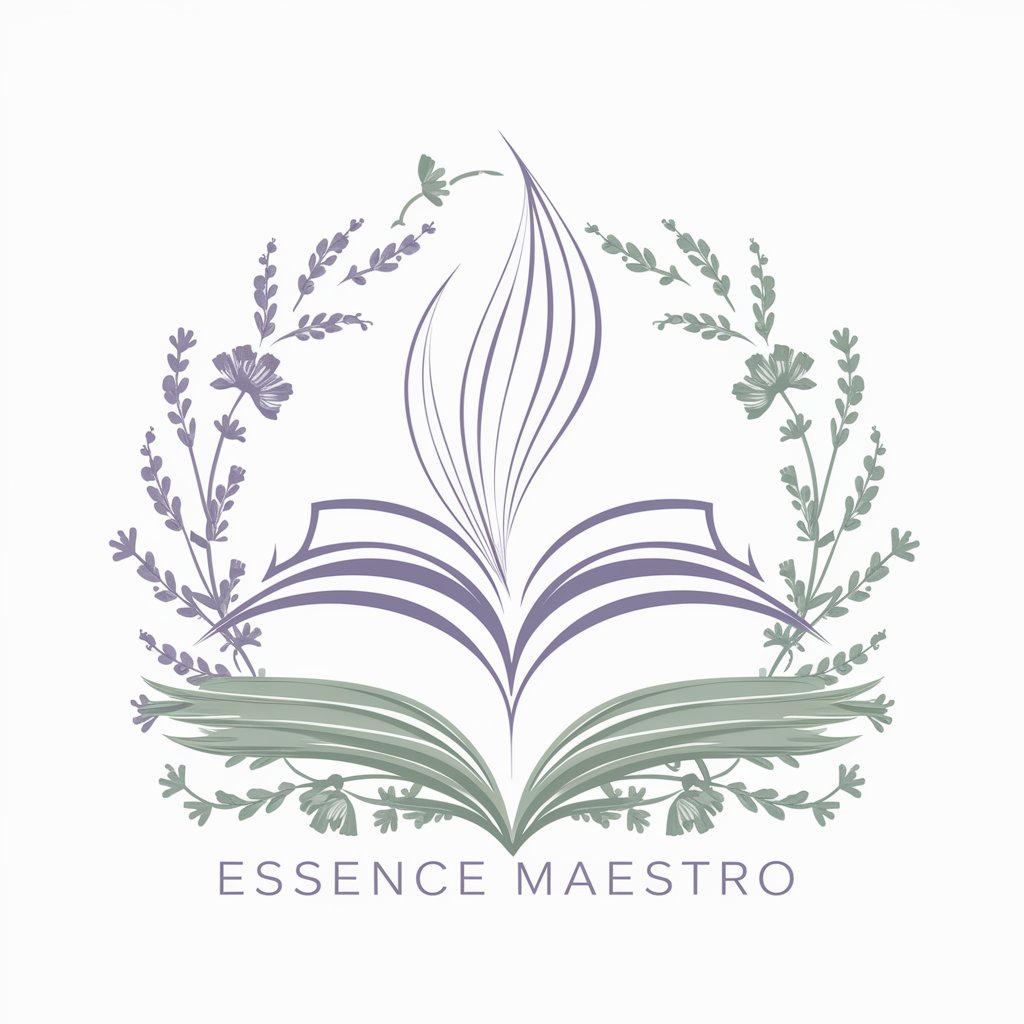
Plant Therapy - Plant Health Consultation

Hello! How can I assist with your plant care today?
Nurturing Growth with AI Expertise
How can I help you with your plant today?
What issues are you experiencing with your plant?
Tell me about your plant's environment.
What type of plant are you looking to care for?
Get Embed Code
Introduction to Plant Therapy
Plant Therapy is designed as a comprehensive plant health advisor, intended to assist plant owners in nurturing and maintaining the wellbeing of their plants. It embodies a deep understanding of botany and horticulture, providing scientifically accurate and practical advice for a wide range of plant care issues. From diagnosing plant diseases and pest problems to offering guidance on optimal light, water, and nutrient requirements, Plant Therapy acts as a virtual plant doctor. For instance, if a user notices their fern has brown tips, Plant Therapy would not only diagnose the issue—potentially insufficient humidity or over-fertilization—but also provide a detailed care plan to resolve it. This approach ensures that users receive tailored advice that helps them understand and address the specific needs of their plants. Powered by ChatGPT-4o。

Main Functions of Plant Therapy
Disease Diagnosis and Treatment
Example
Identifying symptoms of powdery mildew on roses and recommending organic fungicides or DIY solutions like a baking soda and water mixture.
Scenario
When a user uploads a photo or describes white, powdery spots on their rose leaves, Plant Therapy provides a step-by-step guide on how to treat the plant, including environmental adjustments to prevent recurrence.
Pest Management
Example
Offering advice on eco-friendly pest control methods, such as introducing beneficial insects like ladybugs to combat aphids.
Scenario
A user finds their garden infested with aphids. Plant Therapy suggests several solutions, including the application of neem oil, introducing natural predators, and using insecticidal soaps, tailored to the user's preference for organic gardening.
Watering and Feeding Recommendations
Example
Determining the precise watering needs for succulents to prevent overwatering and root rot.
Scenario
A user is unsure about the watering schedule for their newly acquired succulent collection. Plant Therapy guides them on how to check soil moisture levels and adjust watering frequency according to seasonal changes, ensuring the succulents thrive.
Light and Placement Advice
Example
Advising on the optimal light conditions for a Fiddle Leaf Fig, including window orientation and signs of too much direct sunlight.
Scenario
A user's Fiddle Leaf Fig shows signs of sunburn. Plant Therapy explains how to identify the best location in the home for the plant, factoring in light intensity and duration throughout the day.
Soil and Repotting Guidance
Example
Guiding on the best soil mix for orchids to enhance drainage and aeration, and when to repot for healthy growth.
Scenario
An orchid enthusiast struggles with root rot. Plant Therapy provides detailed instructions on preparing an orchid-friendly soil mix and steps for repotting, emphasizing the importance of pot size and material for optimal health.
Ideal Users of Plant Therapy Services
Home Gardeners
Individuals who enjoy gardening at home, ranging from novices to experienced gardeners, will find Plant Therapy invaluable for its guidance on a broad spectrum of plant care topics. Whether dealing with common houseplants, vegetables, or ornamental flowers, users can access tailored advice to address their specific concerns, improving plant health and gardening success.
Urban Plant Enthusiasts
Those living in urban environments, often with limited space and unique challenges such as lower light levels, will benefit from Plant Therapy's expertise. It offers solutions for maximizing the health and aesthetic appeal of indoor and balcony gardens, helping users create lush, green spaces in urban settings.
Educational Institutions
Schools and universities with horticulture programs can leverage Plant Therapy as a teaching tool, providing students with real-world scenarios for diagnosing and treating plant health issues. It serves as a practical resource for enhancing learning and engagement in botany and environmental science courses.
Professional Landscapers and Horticulturists
Professionals in the landscaping and horticulture industry can use Plant Therapy as a quick reference guide for diagnosing plant problems in the field. It's a valuable asset for ensuring the health of client landscapes and for staying informed about the latest plant care practices and pest management strategies.

How to Use Plant Therapy
Start Your Journey
Begin by visiting yeschat.ai to access a free trial of Plant Therapy without the need for a login or subscribing to ChatGPT Plus.
Identify Your Plant
Have information ready about your plant, including its species, current health condition, and any symptoms of distress it might be exhibiting.
Describe Your Concern
Provide a detailed description of your plant's issue, including environmental conditions like lighting, watering frequency, and soil type.
Receive Expert Advice
Plant Therapy will analyze the information and offer tailored advice on care, treatment options, and maintenance tips to improve your plant's health.
Follow Up and Adjust
Apply the recommended solutions and monitor your plant's progress. Feel free to return with updates or further questions as your plant recovers or grows.
Try other advanced and practical GPTs
Calorie Companion
Empowering Your Health Journey with AI

Arb Skill Shortage
Empowering Arboriculture Insights with AI

Hermetria's Whisper
Unravel Mysteries with AI Magic

! Marine Navigator !
Navigating the Seas with AI Precision

PósArqueologiaBR
Unearth Brazil's Archeological Insights

Web Roaster Bot
Roasting Websites with AI Wit

ShrimpGPT
Shrimp shrimp shrimp shrimp shrimp shrimp shrimp.

Doberman Training Assistant and Consultant
Empower Your Doberman with AI-Powered Training

Opsworks to SSM Migration Assistant
Streamlining AWS Migrations with AI

Coin Valuation
Unlock Your Coin's True Value with AI

Business Master Simulator
Empowering Entrepreneurs with AI-Led Business Simulations

Thumbnail Maestro
Crafting Visual Stories, Powered by AI

Frequently Asked Questions About Plant Therapy
What is Plant Therapy?
Plant Therapy is an AI-powered tool designed to help plant owners diagnose and treat plant health issues, offering expert advice on care and maintenance.
Can Plant Therapy identify any plant species?
While Plant Therapy covers a wide range of common and exotic plant species, its accuracy improves with more detailed information provided about the plant in question.
How does Plant Therapy diagnose plant health issues?
Plant Therapy uses the information you provide about your plant's symptoms, environmental conditions, and care routines to pinpoint potential health issues and recommend solutions.
Is Plant Therapy suitable for both indoor and outdoor plants?
Yes, Plant Therapy offers advice tailored to both indoor and outdoor plants, addressing specific needs and challenges associated with each environment.
How often should I consult Plant Therapy for my plant care?
Consult Plant Therapy as often as needed, especially when you notice changes in your plant's health or when adjusting care routines with the changing seasons.
